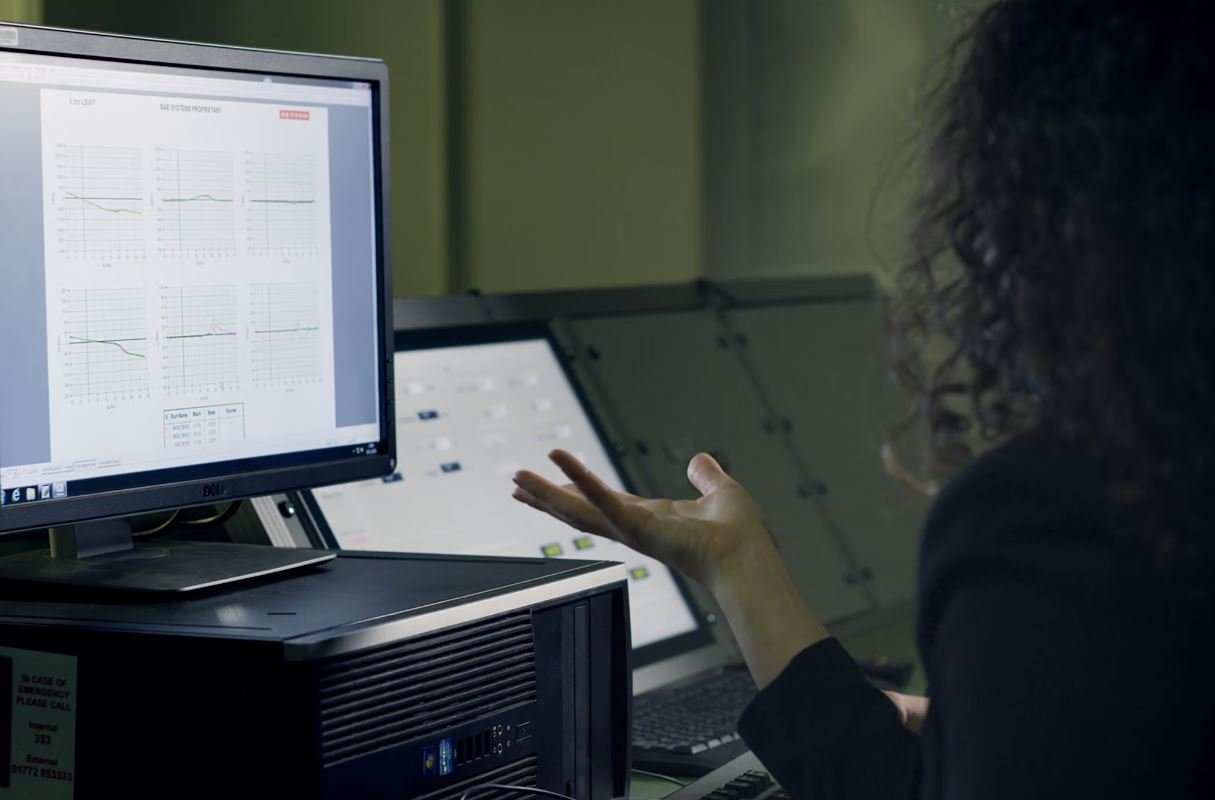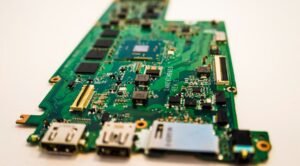How AI Is Changing the World
Artificial Intelligence (AI) has become a powerful force reshaping various aspects of our society. From transforming industries to improving daily experiences, AI technology is revolutionizing the way we live and work. In this article, we will explore how AI is changing the world in remarkable ways.
Key Takeaways:
- AI technology is transforming industries and improving daily experiences.
- AI-powered systems can learn from data and make intelligent decisions.
- Challenges related to ethics, privacy, and job displacements need to be addressed.
- AI has the potential to revolutionize healthcare, transportation, and customer service.
AI in Healthcare
AI is making significant contributions to the field of healthcare. It has the ability to analyze vast amounts of medical data, leading to faster and more accurate diagnoses. *AI-powered medical imaging systems can detect early signs of diseases like cancer, enabling earlier interventions and better treatment outcomes. Furthermore, AI algorithms are being used to develop personalized treatment plans for patients based on their medical history and genetic information.
AI in Transportation
Autonomous vehicles are a prime example of how AI is revolutionizing the transportation industry. *Self-driving cars equipped with AI technology can enhance road safety, reduce traffic congestion, and provide increased mobility for people with disabilities or limited access to transportation. AI algorithms analyze real-time traffic data to optimize routes, reducing travel time and fuel consumption. Implementing AI in transportation can have significant social and economic benefits.
AI in Customer Service
The customer service industry is being transformed by AI-powered chatbots and virtual assistants. *These intelligent systems can provide instant responses to customer inquiries, offering personalized assistance and improving overall customer satisfaction. Chatbots, powered by natural language processing algorithms, can understand and interpret customer queries and provide relevant solutions. With AI, customer service can operate 24/7, improving efficiency and reducing costs.
The Impact of AI
AI technology is not without its challenges. There are ethical concerns surrounding the use of AI in decision-making processes that may have significant consequences. *Additionally, privacy concerns arise with the collection and analysis of vast amounts of personal data. Job displacements are also a consideration as AI automation replaces certain tasks previously performed by humans. However, with proper regulations and policies in place, these challenges can be addressed, and the positive impact of AI can be maximized.
Tables:
| Industry | AI Application | Benefits |
|---|---|---|
| Healthcare | Medical Image Analysis | Early disease detection, improved diagnosis accuracy |
| Transportation | Autonomous Vehicles | Enhanced road safety, reduced traffic congestion |
| Customer Service | Chatbots and Virtual Assistants | Instant responses, personalized assistance |
Data Points:
- The global AI market is estimated to reach $190.61 billion by 2025.[1]
- AI-driven customer service can lead to cost savings of up to 30%.[2]
Conclusion:
AI technology is transforming the world as we know it. With its potential to revolutionize industries, improve efficiency, and enhance daily experiences, embracing AI opens up new possibilities for innovation. However, it is important to navigate ethical concerns, prioritize privacy protection, and address potential job displacements that arise with AI advancements. By leveraging AI responsibly and guiding its development, we can harness the power of AI for the betterment of society.

Common Misconceptions
There are several common misconceptions that people hold about the impact of Artificial Intelligence (AI) on the world. These misconceptions often stem from misinformation or a lack of understanding about the capabilities of AI technology. It is important to debunk these myths to have a more accurate understanding of the power and limitations of AI.
Misconception 1: AI will Replace Humans Completely
Contrary to the belief that AI will completely replace humans, AI technology is designed to augment human capabilities rather than eliminate them. Humans remain an essential component in the decision-making process. AI tools are developed to enhance productivity, efficiency, and accuracy in various domains, but they still rely on human supervision and intervention.
- AI technology needs human input and supervision to function effectively.
- Human creativity, critical thinking, and emotional intelligence are irreplaceable by AI.
- AI can perform repetitive tasks more efficiently, leaving humans to focus on complex problem-solving.
Misconception 2: AI Will Take Away All Jobs
While it is true that AI will disrupt certain job sectors, it does not mean that it will lead to widespread unemployment. AI technology is creating new job opportunities and transforming existing roles. It enables the automation of mundane and repetitive tasks, allowing humans to focus on higher-value work that requires creativity, empathy, and complex decision-making.
- AI creates new job roles in AI research and development, data analysis, and AI programming.
- AI technology can enhance productivity and enable businesses to grow, leading to job creation.
- Many jobs will be transformed rather than eliminated, with AI assisting human workers.
Misconception 3: AI is Perfect and Unbiased
One common misconception is that AI systems are flawless and completely objective. However, AI is only as reliable and unbiased as the data it is trained on. Bias can inadvertently be embedded in AI algorithms through biased training data or biased human decision-making during the development process. It is crucial to address these biases to ensure fair and ethical AI applications.
- AI algorithms can perpetuate existing biases present in training data.
- Humans should actively monitor, evaluate, and mitigate bias in AI systems.
- AI can amplify biases if not carefully designed and tested for fairness and inclusivity.
Misconception 4: AI Will Solve All Problems
While AI has the potential to tackle complex problems and improve efficiency, it is not a magical solution for all challenges. AI technology has its own limitations, and there are certain problems that require human judgment, ethics, and context to solve effectively. AI should be regarded as a valuable tool that can assist humans in decision-making but not as a universal problem solver.
- AI lacks the ability to understand context, emotions, and nuanced human interactions fully.
- Complex problem-solving often requires creativity, empathy, and critical thinking that AI cannot replicate.
- Ethical and moral dilemmas cannot simply be solved by AI algorithms alone.
Misconception 5: AI is a Threat to Humanity
There is a popular misconception that AI poses a significant threat to humanity and will eventually surpass human intelligence, leading to a dystopian future. However, scientists and experts who understand AI consistently emphasize the importance of responsible AI development and regulation. AI is a tool created by humans and can only pose a threat if misused or not properly governed.
- The ethical development and deployment of AI is crucial to prevent any potential harm.
- AI technology should be designed with transparency, accountability, and human oversight.
- AI systems are not inherently malicious and can provide immense societal benefits if used responsibly.

The Impact of AI in Healthcare
Artificial Intelligence (AI) has revolutionized the healthcare industry by enhancing patient care, diagnosing diseases more accurately, and improving overall efficiency. The following table highlights the significant advancements AI has made in healthcare:
| Advancements | Benefits |
|---|---|
| AI-powered diagnostic tools | More accurate and faster disease detection |
| Virtual nursing assistants | 24/7 patient monitoring and support |
| Robotic surgeries | Precise, minimally invasive procedures |
| Drug discovery | Accelerated research and development process |
| Personalized treatment plans | Improved patient outcomes |
The Role of AI in Transportation
Advancements in AI technology have transformed the transportation industry, enabling safer and more efficient modes of transportation. The table below outlines some key developments:
| Developments | Impact |
|---|---|
| Self-driving cars | Reduced accidents and increased mobility |
| Traffic management systems | Optimized traffic flow and reduced congestion |
| Smart transportation infrastructure | Real-time information and improved efficiency |
| AI-powered logistics | Enhanced supply chain management and delivery |
| Automated drones | Efficient delivery and monitoring services |
AI’s Influence on Education
Artificial Intelligence has transformed the landscape of education, providing personalized learning experiences and simplifying administrative tasks. The table below highlights the ways AI is changing the education sector:
| Applications | Benefits |
|---|---|
| Intelligent tutoring systems | Individualized learning and instant feedback |
| Automated grading | Time-saving for educators and prompt feedback for students |
| Smart content recommendations | Targeted learning materials based on student’s needs |
| Virtual reality classrooms | Enhanced immersive learning experiences |
| AI-powered language translation | Improved accessibility for non-native speakers |
Enhanced Customer Experience through AI
The utilization of AI has significantly enhanced customer experiences across various industries. The table below demonstrates how AI has revolutionized customer service:
| Industry | AI Integration | Benefits |
|---|---|---|
| Retail | Chatbots for instant customer support | 24/7 availability and reduction in response time |
| Banking | Virtual assistants for personalized financial advice | Improved financial planning and customer satisfaction |
| Hospitality | AI-powered automation for bookings and customer service | Streamlined booking processes and enhanced guest experiences |
| Telecommunications | Intelligent call routing and voice recognition | Faster issue resolution and improved call quality |
| Insurance | AI-based claims processing and fraud detection | Reduced processing time and enhanced security |
AI Applications in Finance
AI has transformed the finance sector, revolutionizing processes and improving decision-making. The table below showcases various AI applications in finance:
| Applications | Benefits |
|---|---|
| Fraud detection | Enhanced security and reduced financial risks |
| Algorithmic trading | Faster and more efficient trades |
| Virtual assistants for financial advice | Personalized recommendations and improved investment decisions |
| Automated risk assessment | Accurate evaluation and mitigation of financial risks |
| Loan underwriting | Streamlined loan approval process and reduced errors |
AI’s Impact on Marketing
AI has revolutionized marketing strategies by providing valuable insights, automating processes, and enhancing customer targeting. The table below demonstrates the impact of AI in marketing:
| Aspects | Benefits |
|---|---|
| Personalized advertisements | Improved customer engagement and conversion rates |
| Predictive analytics | Better campaign optimization and increased ROI |
| Chatbots for customer interaction | 24/7 customer support and immediate response |
| Targeted email marketing | Higher open rates and improved customer relationships |
| Social media analytics | Effective audience targeting and campaign tracking |
AI in Environmental Conservation
AI has brought significant advancements in environmental conservation, aiding in the preservation of our planet. The table below highlights AI‘s contributions to environmental efforts:
| Contributions | Impact |
|---|---|
| Wildlife protection | Efficient tracking and monitoring of endangered species |
| Smart energy management | Optimized energy consumption and reduced carbon footprint |
| Environmental data analysis | Accurate prediction and prevention of natural disasters |
| Water resource management | Efficient monitoring and conservation of water resources |
| Improving air quality | Identification and mitigation of air pollution sources |
AI’s Influence on Entertainment
AI has transformed the entertainment industry, enabling personalized experiences and transforming content creation. The following table illustrates AI’s influence on entertainment:
| Areas | Influence |
|---|---|
| Recommendation algorithms | Personalized content suggestions based on user preferences |
| Virtual reality experiences | Immersive and interactive entertainment |
| AI-generated music and art | Innovative creations beyond human capabilities |
| Automated content moderation | Efficient removal of inappropriate or harmful content |
| Realistic CGI in movies | Seamless integration of computer-generated imagery |
AI’s Impact on Cybersecurity
AI plays a crucial role in combating cyber threats by identifying vulnerabilities, detecting anomalies, and enhancing security measures. The table below showcases how AI impacts cybersecurity:
| Impacts | Benefits |
|---|---|
| Threat detection | Enhanced identification of sophisticated cyber attacks |
| Behavioral analysis | Detection of abnormal user behavior indicating potential threats |
| Vulnerability assessment | Identification of system weaknesses before they are exploited |
| Automated security response | Rapid and precise incident response |
| Malware detection and prevention | Efficient identification and neutralization of malicious software |
Artificial Intelligence (AI) has undeniably transformed numerous industries, ranging from healthcare and transportation to education and entertainment. Through applications such as AI-powered diagnostic tools, self-driving cars, intelligent tutoring systems, and personalized advertisements, AI has revolutionized processes, enhanced efficiency, and improved overall experiences. With continued advancements and ongoing research, AI is poised to shape the world for the better.
Frequently Asked Questions
How AI Is Changing the World
What is Artificial Intelligence (AI)?
How is AI being used in various industries?
What are some potential benefits of AI?
What are the challenges and risks associated with AI?
What is the role of AI in the future?
How does AI impact job markets?
How can AI help in addressing societal challenges?
How is AI influencing the field of research?
What are some famous examples of AI applications?
How can individuals learn more about AI?




